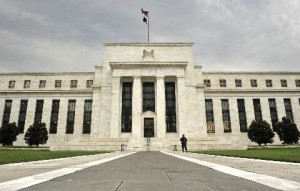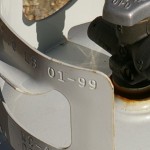Commentary: Take two aspirin and call Bernanke in the morning
By Satyajit Das | From SYDNEY (MarketWatch) | On Tuesday, July 25th, 2012
Dear Doctor: Thank you for referring Mr. Global Economy to me.
The patient’s history includes a seizure in 2007/2008 — financial losses, banking problems, a major recession. Liberal injections of taxpayer cash avoided catastrophic multiple organ failure, assisting a modest recovery.

Fed sees action if growth stays sluggish
Federal Reserve officials, impatient with the economy’s disappointing performance, are moving closer to taking new actions to spur growth and employment if they don’t see evidence soon that activity is picking up. Jon Hilsenrath has details on The News Hub.
Governments ran large budget deficits in the period after the crisis. Interest rates around the world were reduced to historic lows, zero or negative in many developed countries. Balance sheets of major central banks have increased to $18 trillion from around $6 trillion, reflecting an unprecedented 30% of global gross domestic product.
Mr. Economy is now addicted to monetary heroin. Increasing doses are necessary for the patient to function at all.
Mr. Economy has not made the changes necessary for a return to full health. He seems to have taken rock star Steven Tyler’s advice: “Fake it until you make it.”
Borrowing levels remain unsustainable. Debt levels for 11 major nations have increased to 417% of GDP in 2012 from 381% of GDP in 2007. Debt has increased in Canada, Germany, Greece, France, Ireland, Italy, Japan, Spain, Portugal, the U.K. and the U.S.
Global imbalances — major current account surpluses and deficits — remain. Little progress has been made in bringing the banking system under control.
Critical diagnosis
Physical examination of Mr. Economy reveals serious problems. The U.S. is in marginally better condition than other organs — the “cleanest dirty shirt” is the commonly given expression. Despite a $1 trillion annual budget deficit (6% of GDP) and expansionary monetary policy, U.S. growth is a tepid 2%.
The U.S. housing market’s rate of descent has slowed but prices remain 30%-60% below highs. New housing starts have stabilized, at around 50% below peak levels. Benefiting from a weaker dollar, manufacturing has improved. Lower oil and natural gas prices have benefited the economy.
Employment remains weak. If discouraged workers who have left the workforce and part-time workers seeking full-time employment are included, then unemployment is above 15%, far higher than the headline 8% rate. The total number of Americans now employed is around 140 million — well-below the peak level above 146 million.
Consumer spending remains patchy. Job insecurity, lack of earnings and wealth losses are causing households to reducing spending and repay debt.
Record corporate profits have been achieved mainly through cost reductions and minimal revenue growth. Investment is weak due to the lack of demand.
Bank lending is sluggish due to lower demand for credit and problems of financial institutions.
Federal public finances remain unsustainable. Cuts in spending, mandated under the 2011 increase in the national debt ceiling, would improve deficits but adversely affect growth. State and municipal finances are under severe stress, with an increasing number of borrowers filing for bankruptcy.







